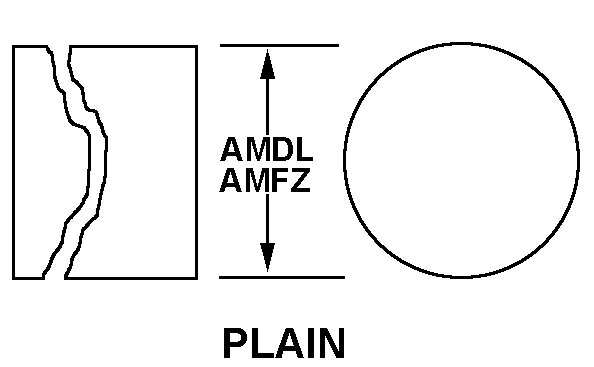3040005706677
Price Quote Get an up to date pricing and availability quote for this product. Order online or over the phone.
Quality Commitment
Serving our customers with quality and safety first.
- AS9120 Certified
- Audited supply chain
- ITAR Registered
- DDTC Registered
- HAZMAT Certified
- Customer service objectives
- Every product 100% inspected

3040-00-570-6677 Specification Set by the OEM (see RNCC code 3)
plain
identical
0.966in. ⁓31/32"
0.0780in.
3
0.140in.
32.0 microinches
0.183 in. between grooves
steel comp 416
QQ-S-763, cond a fed spec single material response
Cross Reference Parts Part numbers that meet the specification outlined on this page and set by the OEM
Identification Item Identification Guide (IIG) and Item Name Code (INC)

Definition Definition of approved item name (AIN): "SHAFT,SHOULDERED"
A shaft having two or more different diameters (greater than 0.031 inches (0.79 millimeter)) along its length. It must have one or more of the following conditions: a specified surface finish designation in the range 1 to 125 microinches (0.025 to 3.2 micrometers) arithmetical average (aa), machined peripheral flat(s), circular groove(s), keyway(s), splines, threads, or holes. The ends and/or shoulders may be machined to accommodate bearings, couplings, and the like. It is not designed for use in aligning by fitting into corresponding holes of another item. For items used to support rotating members see axle(1), shouldered. For items not having any of the above conditions see pin, shoulder, headless. Excludes shaft(1), straight; and axle(1), straight.
3040-00-570-6677 Material Hazmat, Precious Metals, Criticality, Enviroment, and ESD
Indicates there is no data in the hmirs and the nsn is in a fsc not generally suspected of containing hazardous materials.
Precious metal content is unknown
The item does not have a nuclear hardened feature or any other critical feature such as tolerance, fit restriction or application.
Identification Codes
HMIC: Hazardous Material Indicator Code. A one position code that identifies a hazardous item.
PMIC: Precious Metal Indicator Code. A one position code which identifies items that have precious metals as part of their content. precious metals are those metals generally considered to be uncommon, highly valuable, and relatively superior in certain properties such as resistance to corrosion and electrical conductivity.
ESD: Electrostatic Discharge. Indicates if an item is susceptible to electrostatic discharge or electromagnetic interference damage. electrostatic discharge damage occurs when an accumulation of static electricity generated by the relative motion or separation of materials is released to another item by direct contact. electromagnetic interference damage occurs when an item comes into proximity with an electrostatic or magnetic field.
ENAC: Enviromental Attribute Code. Identifies items with environmentally preferred characteristics.
CRITL: Criticality Indicator Code. Indicates an item is technically critical by tolerance, fit, application, nuclear hardness properties, or other characteristics.






